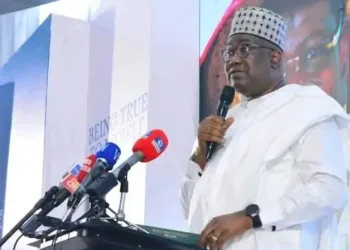
Last week, the Federal High Court in Abuja granted an Interim Injunction in favor of Segilola Resources Operating Limited (SROL), restraining the Osun State Government and its officials from interfering with the company’s mining operations. The order was issued by Justice Emeka Nwite on Thursday 3rd October, 2024, following an ex parte motion filed by the company.
The injunction prevents the Osun State Government from disrupting the gold mining operations of Segilola Resources or denying the company access to its mining site. This comes amidst ongoing allegations against the company regarding tax liabilities and environmental concerns, accusations that SROL has strongly denied and stated these allegations have been presented without any evidence
Legal experts suggest that the court’s ruling reinforces the importance of respecting judicial processes in settling disputes, particularly in sensitive sectors like mining, where operational disruptions can have far-reaching economic implications.
The Osun State Government’s actions in the Segilola mine case have drawn criticism for overreach and questionable legal footing, raising concerns about its impact on investor confidence. One glaring example is the sealing of the mine site under a magistrate court order, even though magistrate courts lack jurisdiction over tax matters. Furthermore, mining is under the Exclusive Legislative List, meaning state governments have no authority to unilaterally shut down mining operations.
Initially, the Osun State Internal Revenue Service (OSIRS) issued a tax liability of ₦3,250,598,513 to Segilola Resources Operating Limited, which was later revised to ₦98,347,105. However, in a recent radio interview, the Governor’s Special Adviser on Mining and Mineral Resources, Professor Lukman Jimoda, declared the revised notice void, insisting that the initial liability still stands. This ongoing dispute not only undermines Nigeria’s regulatory processes but also sends a dangerous signal to potential foreign investors. The state’s overreach risks damaging the country’s reputation as a stable environment for foreign direct investment (FDI), especially in the mining sector critical to economic diversification.
With the matter before the judiciary, stakeholders are looking to the court for an interpretation of the relevant provisions of the law. Both Segilola Resources and the Osun State Government will have to abide by the court’s directives as the legal process unfolds.
In a separate development, the Federal Government, through the Ministry of Solid Minerals Development, recently established a fact-finding committee to investigate the circumstances surrounding the sealing of the mine site.
During a press briefing yesterday in Abuja, the Minister of Solid Minerals Development, Dr. Alake reaffirmed the Federal Government’s stance that mining falls under the exclusive legislative list.
” I’d like to reaffirm our position that though mining companies must obey all laws and regulations guiding their operations such as payment of taxes, environmental regulations, Corporate Social Responsibility (CSR) amongst others, it is our firm belief that sub national authorities do not possess the power to arbitrarily shut down mining operations because the mining of liquid or solid minerals belongs in the exclusive list, within the purview of the Federal Government, to regulate, legislate and direct”, the minister asserted.
In her remarks, the Permanent Secretary, Dr. Mary Ogbe urged states to cooperate with the Federal Government to avoid disruptions in mining operations, emphasising that such actions send wrong signals to prospective investors and can be a disincentive to the needed Foreign Direct Investment (FDI) required to develop the sector.
The probe panel has seven (7) days to submit its report.
Segilola Resources, which operates Nigeria’s first commercial gold mine, is regarded as one of the country’s most successful mining ventures. The company has consistently maintained that it complies with all relevant regulations and remains committed to upholding its responsibilities as a law-abiding corporate entity. Industry observers believe that the resolution of this case could have broader implications for Nigeria’s mining sector and investor confidence.












